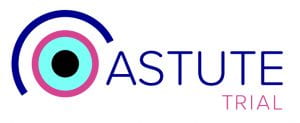Adalimumab vs placebo as add-on to Standard Therapy for autoimmune Uveitis: Tolerability, Effectiveness and cost-effectiveness: a randomized controlled trial.
Status: Recruiting
Sponsor: University Hospitals Bristol NHS Foundation Trust
Autoimmune uveitis (“uveitis”) is a term for several rare eye diseases in which the body’s own immune system causes sight-threatening damage to the light sensitive retina at the back of the eye. Uveitis causes sight loss from inflammation inside the eye, damage to blood vessels in the retina or leakage of fluid into the central, most sensitive area of the retina. Two in 10,000 people are at risk of serious sight loss from uveitis. Usual treatment for autoimmune uveitis involves low dose steroids and one or two other drugs to reduce inflammation. Unfortunately, many patients do not respond to or tolerate usual treatment, or they need high dose steroids to control the uveitis. Long term high dose steroids increase the risk of heart attack, stroke, and infection and affect physical and mental health.
Recent studies suggest a drug called adalimumab, which neutralises a chemical in the body called TNF-alpha, is an effective way to treat uveitis in some patients. However, drugs like adalimumab can have serious side effects and more evidence is required to identify which patients with uveitis benefit the most from adalimumab, both with respect to their vision and quality of life, including treatment side effects.
The ASTUTE Trial aims, first, to identify patients who are most likely to benefit from adalimumab. Participants will be given adalimumab for a 16-week trial period in combination with their usual medications for uveitis. Over the 16 weeks, doctors will aim to reduce the steroid dose to a low level that should not cause side effects.
Then, patients who are successfully treated with adalimumab and low dose steroids will enter the main randomised, double-masked placebo-controlled trial. Regular eye examinations, imaging and questionnaires will be used to assess how well patients are doing. This part of the study, which will treat and follow up patients for 12 to 30 months, will find out whether adalimumab is better at preventing recurrence of uveitis than the placebo and whether adalimumab is cost-effective compared to the placebo treatment.
Patients will be recruited from >20 UK NHS hospitals (400 to the 16-week trial period, of which 174 will progress into the main randomised trial).
Patients with uveitis have contributed to this study from the start, helping to: design the protocol; identify patient-reported outcome measures; co-author the lay summary; draft the funding application; provide feedback on the trial design and participating in a national survey to assess support for the study.
This study is funded by the National Institute for Health Research (NIHR) Health Technology Assessment programme (project reference 16/24/09). The views expressed are those of the author(s) and not necessarily those of the NIHR or the Department of Health and Social Care.
Patient Information Leaflet
ASTUTE Patient Information Leaflet V5.0
Contact Information
Chief investigator: Prof Andrew Dick
Trial Coordinator: Mae Hazell
Email: astute-trial@bristol.ac.uk

